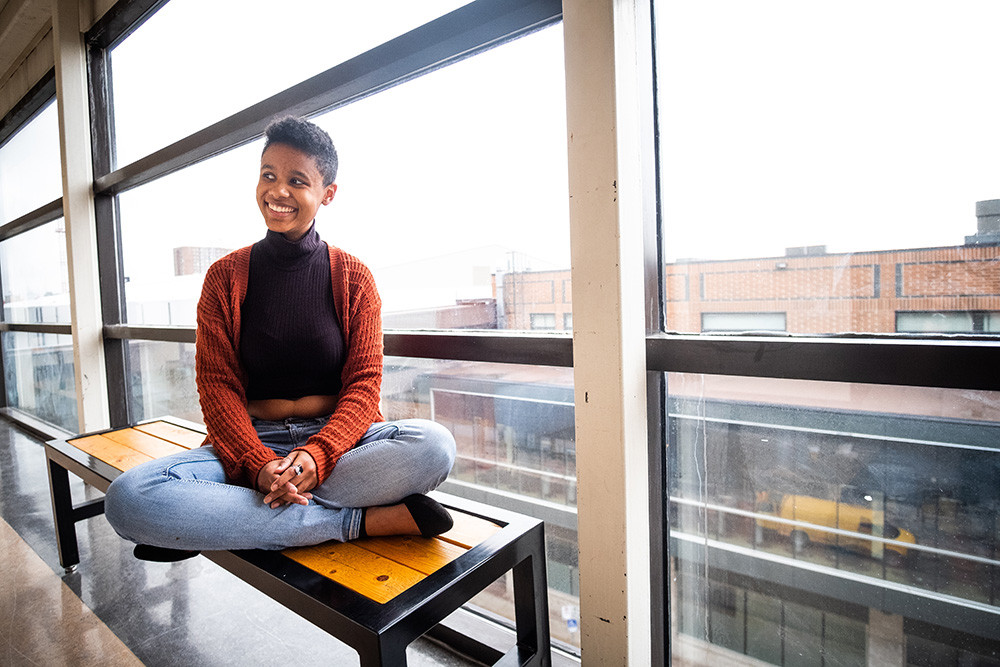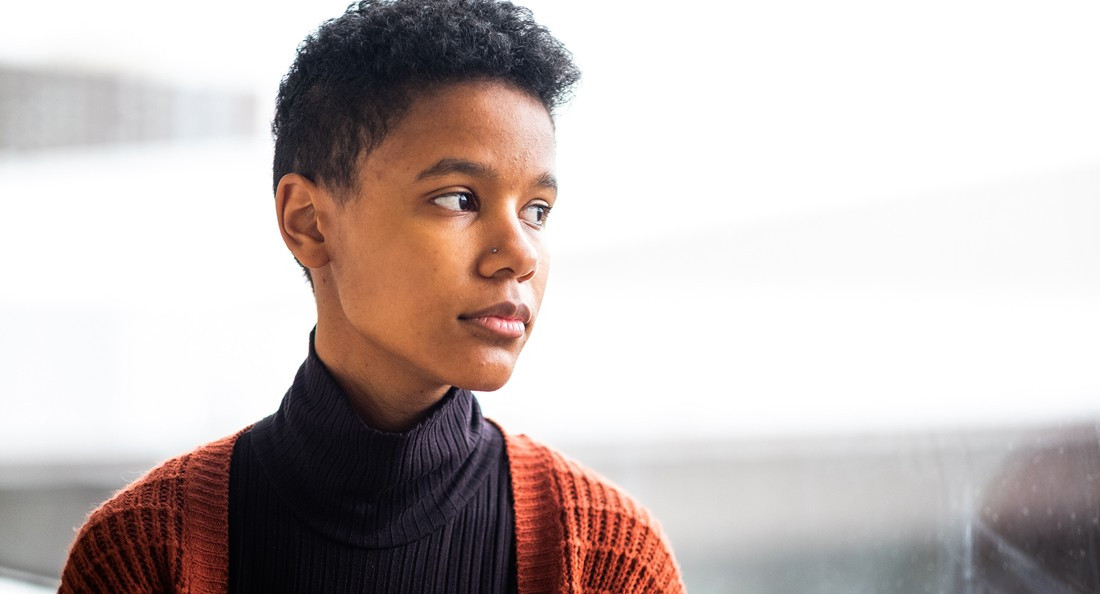Disrupting narratives of the nuclear family
A lifelong experience of fracture, love and change
The experience of growing up and coming into a sense of identity can be a jarring process fraught with turmoil – for some more so than others.
In the western world, where the concept of family is ingrained in the dominant culture and is something that can seem like an intrinsic aspect of life, it can be easy to forget that not all systems of kinship, community, growth and care operate on equal footing.
This is especially true with those who fall outside of dominant groups and have had to grapple with different aspects of identity, while also coming to terms with the expectations that come out of family situations.
Dr. Jenny Wills is an associate professor at the University of Winnipeg (U of W) whose professional work focuses on race and ethnicity, where she examines “certain kinship relations more specifically: a sister, a spouse, etc.”
Dr. Wills tries to avoid the word “family,” because “it is too loaded. It can be a comfort, yes, but it can also be a weapon” she says.
“Professionally, I talk about kinship,” Dr. Wills says, regarding both the institutional and cultural connotations of family.
To think of family as a simple black-and-white matter is to invalidate the multitudes of different living situations and systems of kinship in which people find themselves.
There are many different narratives and definitions of family life that vary from one individual to another.
As people living in the settler-colonial environment of the western world, it is important to consider the narratives of people who fall outside of the dominant culture, and to especially consider the intersectional aspects of identity and its relationships to family institutions.

University of Winnipeg student Keesha Harewood says navigating her mother's white privilege is a sometimes-draining "work in progress."
Defining a family
Keesha Harewood, a 23-year-old U of W student, notes that family can be “very complicated, because there’s the family you’re born with, then there’s your chosen family.”
She comes from a childhood of divorce and mixed-race lineage, bringing forth an interesting perspective on the topic of family.
“You have your blood relatives, but then you have the people who sort of become what family is, the idea of people who are kind to you, who love you unconditionally, who support you, who give you the tough advice you may not want to hear.”
While Harewood says there can be overlap between the people someone chooses to include in their life and the community in which they are born, she acknowledges that family is ultimately “your network of people who love you, basically.”
When confronted with the same question on the definition of family, Natasha Okemow, a U of W graduate who studied criminal justice, sociology and conflict resolution, brings a different point of view.
“The thing about (family), is that I (didn’t have) the option. Having a childhood and having a family is a luxury, and a luxury that (I), as an Indigenous person, (am) not fortunate enough to have.”
Okemow’s perspective comes from a lifetime of moving from one living situation to another. She is a child of the foster-care system.
Natasha Okemow still struggles with issues of family and identity as a result of growing up in foster care.
“To me, family is more chosen, because I have seen in my lifetime that I didn’t really get to grow up in that traditional nuclear-family environment.
“As I’ve navigated life on my own ... and been on my own for most of my life, I’ve had to kind of find people to fill in those (family) roles, who are equivalent to family,” Okemow says.
Okemow clarifies that her stance on family is influenced by settler-colonial systems of power, such as foster care, and that the crafted ideal of the nuclear family can be unattainable due to its connotations with whiteness as the dominant culture.
“It’s a never-ending cycle. It never ends. And so having a family is a very far-fetched, unrealistic dream,” she says.
Harewood, on the other hand, grew up in a consistent household, but says “I’m a child of divorce, and I also lost my father at age 12. ... After the divorce, there was a lot of fallout with extended family, feuds and everything.
“I had a part of my life where there was a lot of community and a lot of love for people who just loved each other, and who I knew weren’t even my blood family but were my parents’ friends, and therefore were my aunts and uncles. But then one dramatic thing happens, and you see the exact opposite of that,” Harewood says.
Both these young women have faced countless struggles throughout their lives brought on by institutionalized racism and the culture of white hegemony. They have come to the conclusion that the concept of the traditional nuclear family is simply that, a concept.
Familial expectations and an incongruent identity
The complications of family can extend beyond its institutional form, moving from simply a unit of people who grow up together to a major defining factor in the creation of one’s identity and ways of being in adulthood.
“‘Family’ uses the same logic of belonging and non-belonging as nationalism. It is one of the earliest forms of inclusion/exclusion that we are taught as children,” Dr. Wills says.
The concept of belonging is often taught from adult to child in a home or family unit, sometimes with well-meaning intentions, or other times, to reinscribe traditional values or forms of power.
Though she explains that her relationship with her mother has changed throughout her adolescence, ranging from well-meaning yet confused to opened-minded understanding, Harewood muses that “I can track the change from when I was a child and how (my mother) was versus how I am now and how she is now.”
“Growing up, I had ADHD, and I was only diagnosed when I was 14. So a lot of the expectations were sort of centred around neurotypical behaviour and behaving correctly and not deviating from the norm,” she says.
Harewood struggles with finding balance in surviving day-to-day life while navigating social and cultural norms, but she also strives to find her own happiness, something that is easier to achieve in theory than in practice.
“It’s a very confusing method, and it hasn’t done me very good, and I’ve actually had to redefine how I think about that.”
When asked about her systems of kinship and support, Okemow speaks on her grievances regarding her relationships with people, and how even though she has great love for the people that have stepped up to support her, she will never have the memories of a traditional family upon which to build her identity.
The layering traumas of foster care and her mixed-race Indigenous and Jamaican lineage leaves her with a broken sense of identity in her adult life that she constantly braves every day and continuously redefines and recreates for herself.
Okemow describes the impact of her experiences not as fracturing, but as shattering.
“I don’t think it fractured me. I think it destroyed me, actually, like it completely destroyed me, and I don’t think that it’ll ever be repaired.
“I’m never going to get those years back. I lost my whole childhood, I lost all my siblings, and I was left to pick up the pieces, because the system decided to act in my best interest, which was never in my best interest,” she says.
“I always spend holidays with my best friends ... I feel bad, because I rely on them a lot, like I rely on them for more than what a friend needs to rely on someone for.”
Family as an institution and the ramifications of hegemony
When asked about the experiences of navigating racial identity in conjunction with the complications and implications of family, Harewood speaks of her need to go against the language often associated with said matters.
“I personally don’t like to use the word ‘biracial’ for myself ... the ‘bi’ thing already promotes the idea that there’s two, (that) I’m made up of a solid two, almost like you took a beaker full of white liquid and a beaker full of black liquid and then poured two in.”
“That’s why I prefer simply ‘mixed-race’ for myself. I do not have charts of my whole lineage at all.”
When speaking on the issues of health care in Manitoba and the need for care in her life, Okemow addresses the cracks in foster care programs and how they are not nurturing toward young people who reach adulthood.
“The system was like my parents until I was 21,” she says.
She states that in Manitoba, people age out of foster care at age 18, but she “was sick for a while and was undergoing surgery and radiation.”
Okemow says she would have been aged out of the system if not for the advocacy of her group home.
For larger systems of social and cultural power, such as government and family institutions, the issues of childhood and identity present as black and white. For individuals living this on a day-to-day basis, it is these exact systems and structures of power that cause so much trauma.
Facing the Future
For Okemow, she is surviving every day with a sense of unbelonging and is creating an identity for herself out of that sentiment.
“What do you want to contribute to this world? What do you want your legacy to be when you’re trying to figure out your background?” Okemow questions.
“To me, it’s a process and there’s phases, and I’m in this reality phase where reality kind of sucks! And I’m still trying to figure that out,” she says.
Due to the close nature of their relationship and the love that Harewood and her mother feel for each other, Harewood finds the emotional toil of navigating her mother’s white privilege to sometimes be draining and describes it as “a work
in progress.”
“That’s all you can really ask from a parent, is their willingness to grow with you and accept how you grow” she says.
“The nuclear family is ridiculous!”
Published in Volume 74, Number 2 of The Uniter (September 12, 2019)







